Economic & Geopolitical History of Mali Part 3: The War in the Sahel
Stability Issues in the Sahel
In part I traced an overview of modern Mali and explored the historical Ghana-Mali-Songhai Empires.
In part II, I covered the pre-colonial history of Mali that took place after Songhay’s collapse, French colonialism, and post independence history. Mali’s founding father, Modibo Keita, tried to unite with other African countries but failed. Also costly state-driven, industrial drives ended in bankruptcy and Tuareg unrest, opening the door to Moussa Traoré’s (Tra-or-ay) military takeover. Traoré’s rule—scarred by drought, oil shocks, border clashes with Burkina Faso, and a 2nd Tuareg uprising—collapsed in a 2nd military coup.
1990s: Transition to Democracy, IMF Structural Adjustment, and CFA shock
Amadou Toumani Toure (“ATT”) (1991-1992)
Amadou Toumani Touré ousted Traoré and allowed elections to avoid sanctions.
Meanwhile, the Tuareg rebellion continued, and the Arabs and Tuareg Amazigh (also known as Berbers) formed the "People’s Movement for the Liberation of Azawad."
Alpha Oumar Konare (1992-2002)
IMF Structural Adjustment Program: Alpha won and continued the IMF structural reform program, privatizing, partially privatizing, restructuring, and liquidating unprofitable government owned businesses. He sold bankrupt firms in textiles, hotels, pharmaceuticals, nut processing, oilseed refining, agricultural equipment, canning, cement, ceramics, and air transport to private investors, aiming to recoup cash and improve management.
However, the privatization program largely failed. Mali's private sector remains weak, with none of these businesses becoming global competitors or generating substantial foreign exchange. Mali still sells more raw cotton than textiles.
Alpha also ended the second Tuareg &Arab rebellion. After the rebellion, Alpha incorporated more Tuaregs into the government and supported Tuareg small businesses, though they still feel underrepresented.
France devalued the CFA Franc: In 1994, France devalued the CFA Franc, trying to boost Black French Africa’s export competitiveness. But the downsides of a devalued currency is that imports became more expensive… Literally 100% more expensive…Students rioted over economic hardship in 1994-1995, and Alpha had to send soldiers to put down the students. Despite this, he was re-elected.
One of Konaré’s key achievements was attracting foreign investment in Malian gold mines. From 1960 to 2000, Mali’s main export was cotton. Alpha encouraged mining multinationals to explore for gold, and since 2001, Mali's main export has been gold. Alpha left after his second term peacefully.
2000s: Gold Boom, Tuareg peace, AQIM spill-over
Amadou Toumani Touré (ATT) comes back (2002-2012)
The former military colonel took power in a democratic election. His campaign was on the usual stuff “fighting corruption, supporting peace, development, and reduce poverty.”
Unfortunately, Mali still faced significant dysfunction, including smuggling narcotics across the Sahara and corruption among elected officials.
Economy: Under Touré, Mali increased gold sales with investments from South Africa, Russia, and Canada. In addition, Mali was receiving foreign investments from Gaddafi’s Libya. Gaddafi invested in a massive agriculture project in Mali to increase rice yields in the Segou region and irrigation canals. 2002 to 2012 was the greatest moment of economic growth in Mali, bringing Mali to its highest living standards, even when you adjust for inflation.

Regional Instability: Above Mali, between 1992-2002, Algeria had a brutal civil war, between the Islamists (who won democratically) and the Secularists (who were the incumbents who didn’t want to relinquish power to them). The secularists, cancelled the election, kickstarting the war. By 2002, Algeria reconciled, but radical extremists in the Islamist camp became Al-Qaeda in the Lands of the Islamic Maghreb (AQIM), left Algeria, and escaped to Northern Mali. AQIM started to bomb and kidnap French people in Mali. Due to this, he joined George Bush’s “War on Terror”.
Domestic Instability: The third Tuareg & Arab Berber Rebellion happened between 2006-2009. Again, the Tuaregs & Northern Arabs have been discriminated against, ignored, and wanted more control over their own affairs. The Tuareg & Arab Northern region still had terrible living standards compared to the rest of the nation. The Algerian government brokered the 2006 Algiers accords, which included integrating more Tuaregs into the Malian army, providing economic development aid in their regions like Kidal, and recognition of the Tuareg language (Tamasheq) and culture in Malian media & education. Also, Mali pledged building an airport and telecommunication networks there.
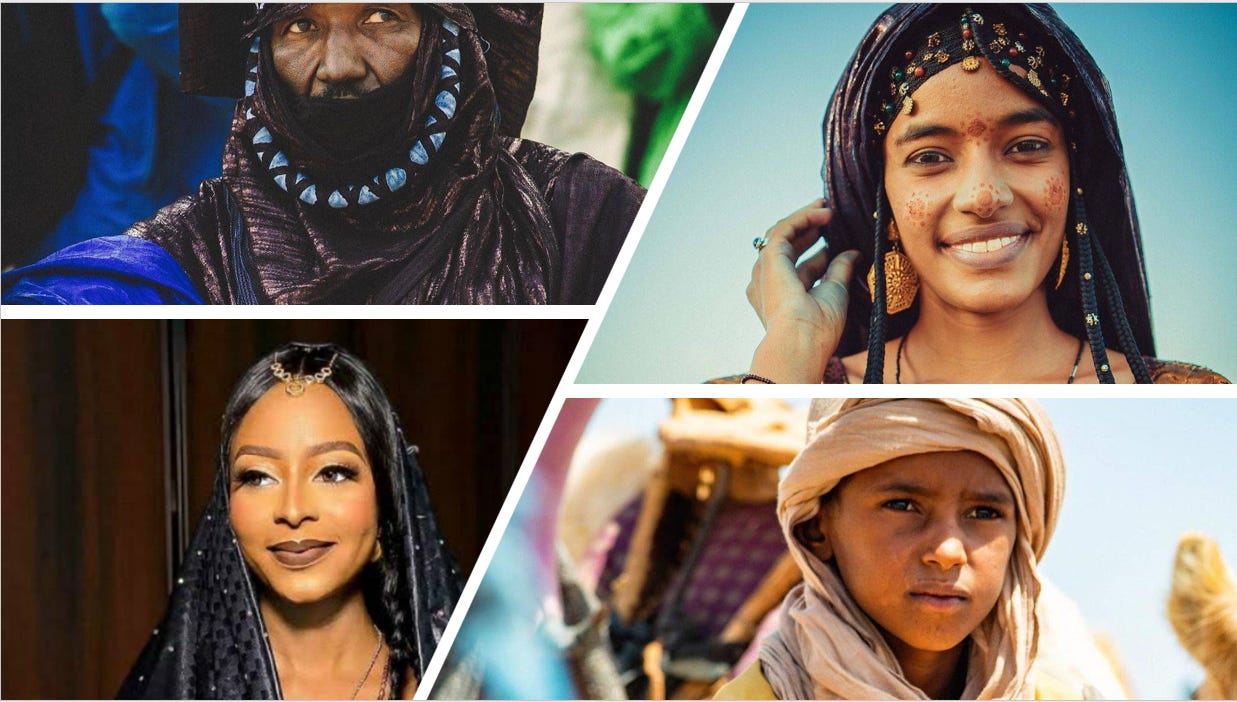
Despite some implementation of these demands, some Tuaregs continued to seek full statehood. The Tuaregs in Niger and Mali coordinated together and started attacking more infrastructure and kidnapping people across Niger and Mali. In 2008, Gaddafi’s son Saif al-Islam of Libya, negotiated a ceasefire between the Tuaregs and Mali’s government, resulting in the release of Tuareg/Arab prisoners and more autonomy to the Tuaregs in Kidal (Ke-dal). By 2009 the Tuaregs were committed to peace, though a splinter group still sought an independent Tuareg state.
Arab Spring’s Affect on the Sahel
The Arab Spring, sparked by Mohammed Bouazizi's self-immolation in Tunisia in December 2010, led to protests and regime changes across the Arab world. But let’s focus on Libya.
Also, throughout Malian & Nigerien history, there have been 1000s of Tuaregs & Arabs who migrated from Mali/Niger to Libya to escape oppression/poverty. Gaddafi allowed migration and recruited and armed Tuaregs & Arabs to join Gaddafi’s Pan-African, Pan-Arab, Islamic Legion. In return, the Tuareg would get decent paying jobs funded by Gaddafi’s oil wealth.
In 2011, after Gaddafi killed 1K (UN estimate) to 10K protestors (ICC estimate) in the Arab Spring (I wrote about Libya here), the United Nations authorized NATO and allied Middle Eastern countries to take all measures to protect Libyan civilians and install a no-fly zone. However, the UN intervention of Libya arguably exceeded its mandate, assisting rebels in Gaddafi's overthrow, leading Libya into a failed state. Afterwards, many Tuaregs, having enjoyed relative prosperity in Libya, returned to Mali to find poverty, disenfranchisement, and governance failures. Disillusioned, they sought to secede.
The aftermath of Libya’s Revolution led to Tuareg & Arab mercenaries plundering Gaddafi's weapon stockpiles, to unleash mayhem in Mali. Among Tuareg factions, the Movement of National Liberation of Azawad-MNLA sought independence, while Ansar Dine aimed for a theocratic Mali, aligned with AQIM. These groups, along with other Al-Qaeda affiliates, collaborated to seize Northern Mali, killing and displacing people to form their state.
As a Tuareg leader said
”We have a deep-rooted and bitter history. We fought French Imperial forces until they left. We never accepted French colonialism nor when when France gave our land to Mali without our consent… Everu decade we start a new rebellion for our rights”
Another Tuareg leader said “Mali is an anarchic state. Therefore, we have gathered a national liberation movement to put in an army capable of securing our land and an executive office capable of forming democratic institutions.”
2010s: Arab Spring Blow Back, Tuareg Uprising, & French Intervention
Mali War (2012-Present)
On January 16, 2012 Mali descended into chaos:
1. The Al-Qaeda of Islamic Maghreb, the Fanatical Tuaregs & Nationalist Tuaregs rebelled and conquered cities, fighting for an independent Azawad (Azawad is Tamasheq for “Homeland”)
2. The military leader Amadou Sanogo, removed Touré in a coup for failing to deal with the Tuareg issue in March 2012.
The UN, African Union, the Economic Community of West Africa (ECOWAS), and France condemned the coup. The World Bank and African Development Bank suspended aid to Mali. ECOWAS executed economic sanctions, froze Malian bank accounts in non-Malian West African Banks, restricted Malian access to West African ports, and launched an embargo on Mali unless they restore democratic rule. Due to the Tuareg/Extremist rebellion, another drought, loss of aid, and the sanctions, international agencies said that Mali was in a food crisis.
Sanogo left, and Dionounda Traore took office by April, ending sanctions.
Dioncounda (Dee-ohn-KOON-dah) Traoré (2012-2013)
Now military leader Traore is in charge as an interim president.
After the coup, the Tuareg rebels smelled weakness. The Tuareg Nationalists and Extremists, teamed up and ended up taking control of Northern Mali and captured the largest (and oldest) Malian cities - Gao, Kidal, and Timbuktu. In April 2012, the Tuaregs declared independence - Azawad, but no one acknowledged the state.
Eventually, the hardline Islamists and the Nationalists didn’t get along. The hardline extremist Islamists, like Ansar Dine, the Movement for Oneness and Jihad in West Africa (MUJAO), and AQIM wanted a Caliphate with an ultra- strict interpretation of Sharia, while the Tuaregs in the MNLA, while still Muslim, did not want an ultra-conservative Islamic state. Betrayal ensued, with radicals turning on nationalists. With support of extremist Afghans and Pakistanis from Al-Qaeda, the Radical extremist Tuareg group fought the nationalist Tuaregs, leading to the extremists' takeover of Northern Mali.
However, the hardliners didn’t want to stop at Northern Mali, they wanted all of Mali and beyond. In every part of Mali the super strict Islamists occupied, they employed a very strict version of Sharia that Malians were not used to. They also started to burn artifacts, ancient Malian scientific writings, libraries, Mosques, and heritage sites of the Malian Empire.
After that failure, nationalist Tuaregs gave up claims to an independent Azawad and asked Mali to help them kill the radical Islamists, and after the war ends, they should achieve some autonomy. Unfortunately, the hardcore Islamist groups started conquering more of Southern Mali and almost took over the capital, Bamako.
As a result, the Tuareg joined the Mali government and Mali begged for French and international assistance to destroy the extremists. The UN Security Council unanimously voted for an intervention in Mali - MINUSA.
The French President, Francois Hollande helped Mali retained the North in January 2013 in French Operation Serval. France brought 15K people to stabilize the country and stop Azawad secession with the help of ECOWAS. Also, the UN Security Council established a Peacekeeping force adopting resolution 2100.
By this time, Mali had to hold elections and Ibrahim Keita won.
Ibrahim Boubacar Keïta “IBK” (2013-2020)
Thanks to the UN and France’s Operation Serval, Mali reclaimed most of the country from militants. Despite the operation’s conclusion in 2014, sporadic suicide bombings by Al-Qaeda affiliates persisted.
Algeria brokered peace accords between Tuareg rebels and the Malian government again in 2015, promising increased Tuareg representation in Malian government. Though progress was made (albeit gradually), concerns lingered over Al-Qaeda affiliates’ persistent violence against civilians, prompting France's Operation Barkane with ~5000 soldiers. However, by 2015, extremist jihadist activities by new groups like Islamic State in the Greater Sahara (ISGS, an ISIS affiliated group) spread to neighboring Niger and Burkina Faso, necessitating a coalition effort.
President Keïta's failure to address Tuareg autonomy and poor public services reignited Tuareg insurgencies. One major problem is that gold prices crashed after 2012, which is Mali’s main foreign currency earner and largest provider of tax revenue for government spending. Also, in 2017, a new group called “Jama'at Nasr al-Islam wal Muslimin” (JNIM) — founded by a Tuareg named Iyad ag Ghali and a Fulani named Amadou Koufa — rampaged through Mali, Burkina Faso, and Niger.
Unfortunately, France’s military is much better at destroying polities (crushing Azawad in Operation Serval), than crushing guerilla movements (crushing ISIS & Al-Qaeda affiliates in Operation Barkane). Over eight years, despite French military presence, radical extremist attacks still occurred. Over the years, the France was increasingly perceived as “neo-colonialists” who steal Malian gold instead of protecting Malians, tarnishing France’s reputation in Mali.
In 2020, after a postponed & shady election that Keita won, Malians were starting to protest due to Keita’s failure to deal with the extremists & rebels, COVID-19 pandemic, a weak economy, government corruption, and France’s presence. IBK’s police fired tear gas at them.
By August 2020, Keita was ousted in a military coup, led by Assimi Goita, to deal with extremists and “end French bootlicking”.
2020s: Shifting from France to Russia
Assimi Goïta (ah-SEE-mee goy-tah) (2020-Present)
Goïta as President: Goïta took power after the coup. But then the Economic Community of West African States (ECOWAS) pressured Goïta to step down and return to civilian rule.
Goïta as VP: So Goïta allowed Bah Ndaw (bah EN-dow) to be President, while he served as VP as transition leaders. But in 2021, Goïta decided to remove Ndaw anyway.
Goita as President again: Goita retuned to presidency again in 2021. He was originally pro-France, but he decided to switch to getting help from Russia.
Firstly, Goïta thought France was “neo-colonizing” his country since Malians couldn’t make certain military action without France’s permission. Secondly, France and the UN were focused on only the Islamic extremists but not the Tuareg secessionists who continued fighting for independence. As a result, Goïta expelled French troops from Mali in 2022 & the 10K+ UN peacekeepers.
Below you can see a picture on how the extremist problem has metastasized even with French and UN support. Even with French, American, and UN support, extremists have displaced 2M+ from their homes in Burkina Faso, Mali, and Niger. The Sahel accounts for almost half of all global terrorist attacks.
So now, Goïta has requested attack drones from Turkey. In addition, he asked the Russian Wagner mercenary group (now called Africa Corps) for help. In Mali, Russia lacks colonial stigma, since Russia never had African colonies and the Soviets funded the ANC in South Africa and many anti-imperialist/leftist governments in Africa like Angola and Mozambique.
Russia’s Africa Corps provided site security, private intelligence, aircraft, aerial radar, and information warfare which protects Mali civilians and the government from terrorism. In return, Russia’s Africa Corps is requesting access to gold mining in Mali as compensation and build a gold refinery in the capital, Bamako.
The friendship between Mali and Russia is strengthening. Below the picture you’ll find a video of Malians signing Russian songs in Russian uniforms.

Unfortunately, terrorist attacks are still occurring. In September 2023, an Al-Qaeda affiliate killed 49 civilians and 15 soldiers. In May 8th, 2024, JMIN slaughtered 32 people and burned 350 homes in two villages. Even Tuareg separatism attacks are ramping up.
Goïta doesn’t plan to return to democratic rule anytime soon. A former Malian Iman-turned-politican said “Elections have given us what for 30 years? Endemic corruption, lethargy and nepotism”. Goïta claims he needs years before he can rip the corruption and bad governance from the state. He also suspended political parties on April 10th 2024. In a poll that took place in the capital, Bamako, 75% of Malians agree that democracy should be postponed.
Economic Policies:
1. Reforming Mali’s gold mining sector: Goïta has arrested foreign gold smugglers and has dismantled illegal mining sites. His government is making a government owned mine for gold exploration as well, and the firm will take ownership stakes in mines that foreign firms are operating in.
2. Nationalization of textiles: The government has renationalized a formerly privatized state owned firm - COMATEX, a textile manufacturer, thinking some industries are better under state ownership.
3. Lithium Development with China: China’s Gangfeng Lithium Group plans to buyout a lithium mine in Goulamina, Mali.
4.Forming the Alliance of Sahel States with Burkina Faso & Niger.
I spoke about this in my article on Niger, so check that out for the full detail. Basically, Mali, Niger, and Burkina Faso formed a political, economic and monetary union, and are leaving the Economic Community of West Africa (ECOWAS). They say that ECOWAS has been co-opted by “foreign powers”. Mali specifically dislikes ECOWAS for slapping sanctions on it after the coup. The sanctions froze Mali’s money in the West African Regional bank, which made Mali default on its debt payment in February 2022.
Issues besides Terrorism: Mali also has electricity issues. In February 2024, Mali is trying to restructure its debts as the state owned firm - Energy du Mali, can’t service its debts to its suppliers and operators. Load-shedding is worsening because energy supply can’t keep up with demand. So Russia donated fuel to Mali. Also, in May 1st 2024, Mali went to the IMF for an emergency $120M loan.
Let’s see if this union with Burkina Faso & Niger works. Meanwhile, in 2021, Tuareg secessionist rebels united into the Strategic Framework for the Defense of the People of Azawad (CSP). These rebels control Kidal and are still fighting for Azawad. Will the Junta be able to defeat the Tuareg secessionists & JNIM?
As of June 2025, its looking terrible for Mali. Russia has been largely ineffective and has been getting crushed by JNIM.
Conclusion
There you have it. That’s the history of Mali. First was the Ghana-Mali-Songhai empires that got rich from selling gold and slaves for salt, and became a center of Islamic learning.
Then after Morocco destroyed Songhai, the region turned into religious and tribal wars for centuries until France colonized the place.
After independence, Modibo Keita tried socialism and Pan-Africanism which both failed for him. Then after varying through democracy and strongmen, Mali has still suffered. Leading to famine, droughts, and Tuareg secessionism. The Aftermath of the Algerian Civil war, and the later Libyan Civil War, has brought radical groups & secessionists which have unleashed mayhem in Mali.
Will Goïta, a strongman, be different? We’ll see, maybe the Sahelian Confederacy will be good for Mali and bring economic development. Or maybe it will make it easier for Tuareg rebels to secede and radical extremists to kill innocent people. Only time will tell.








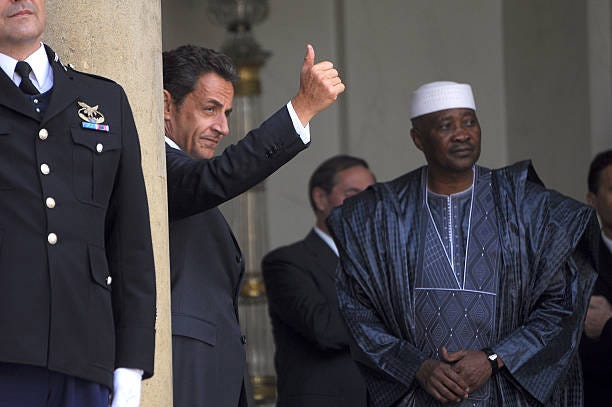
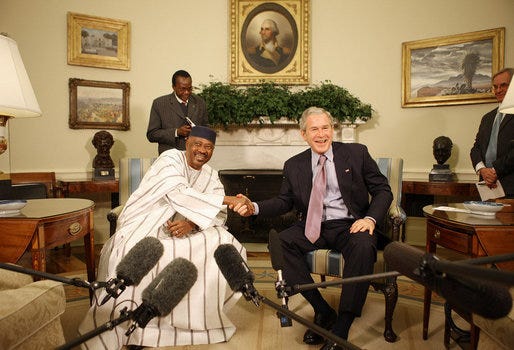
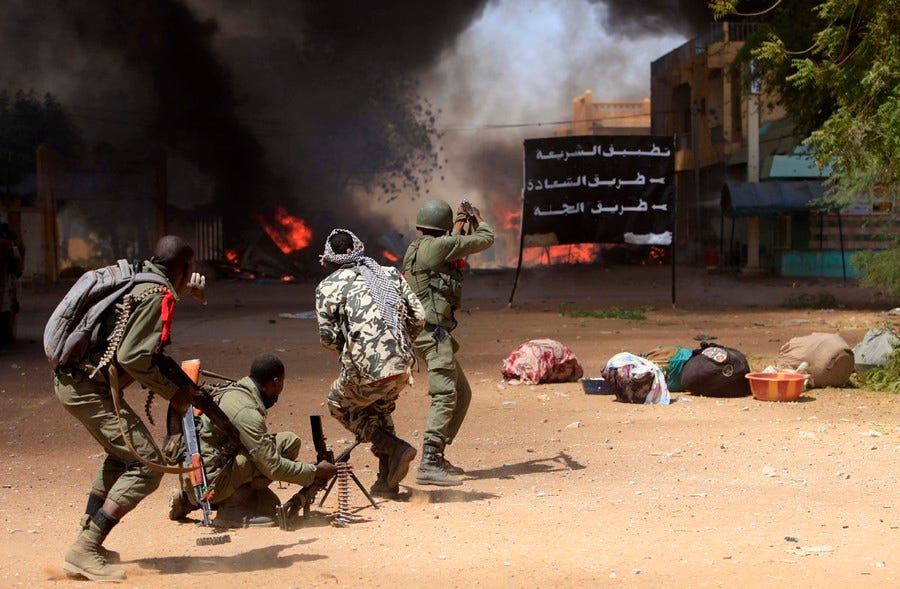
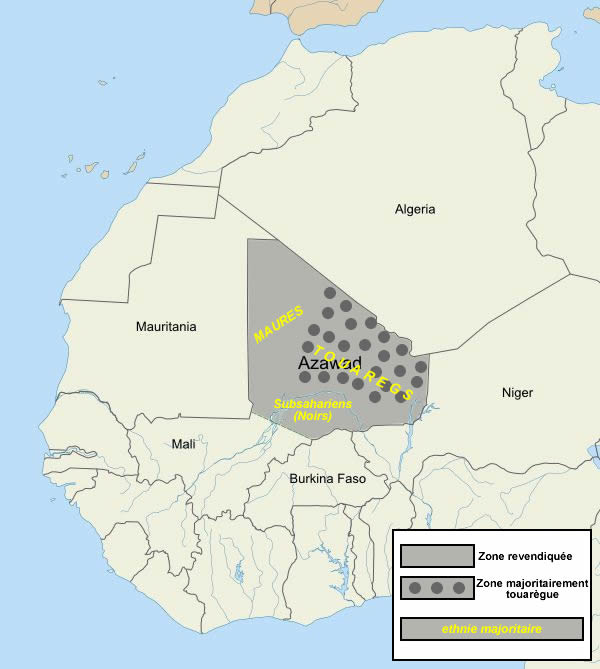
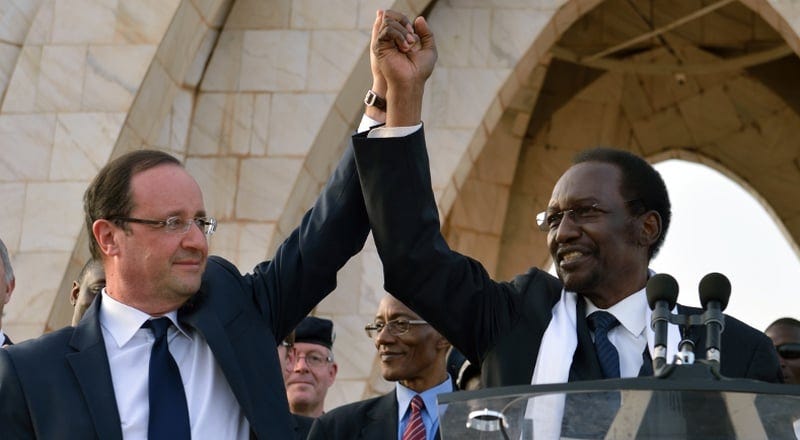
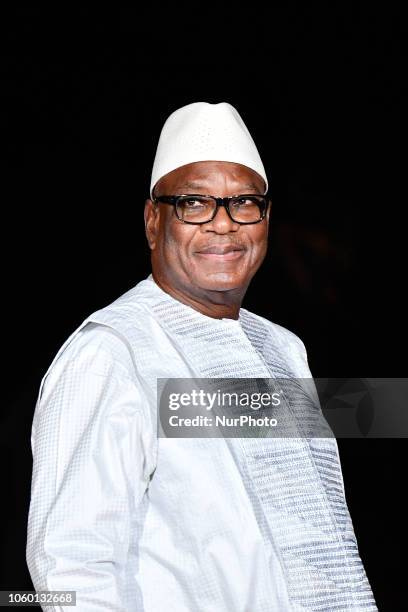
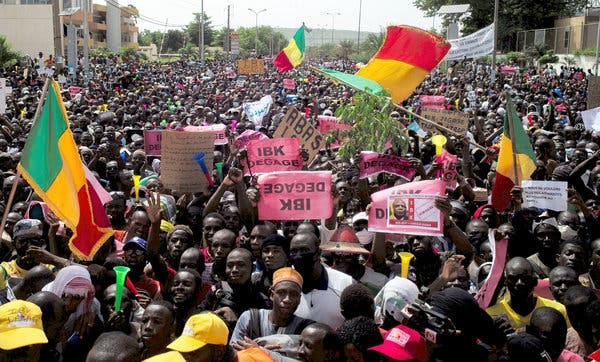



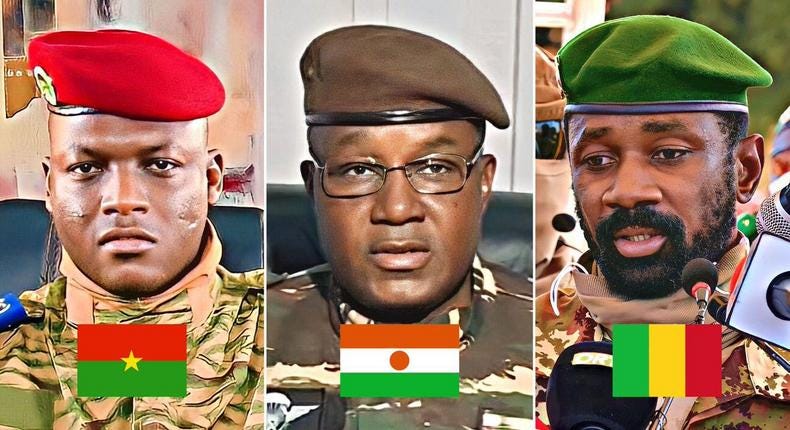

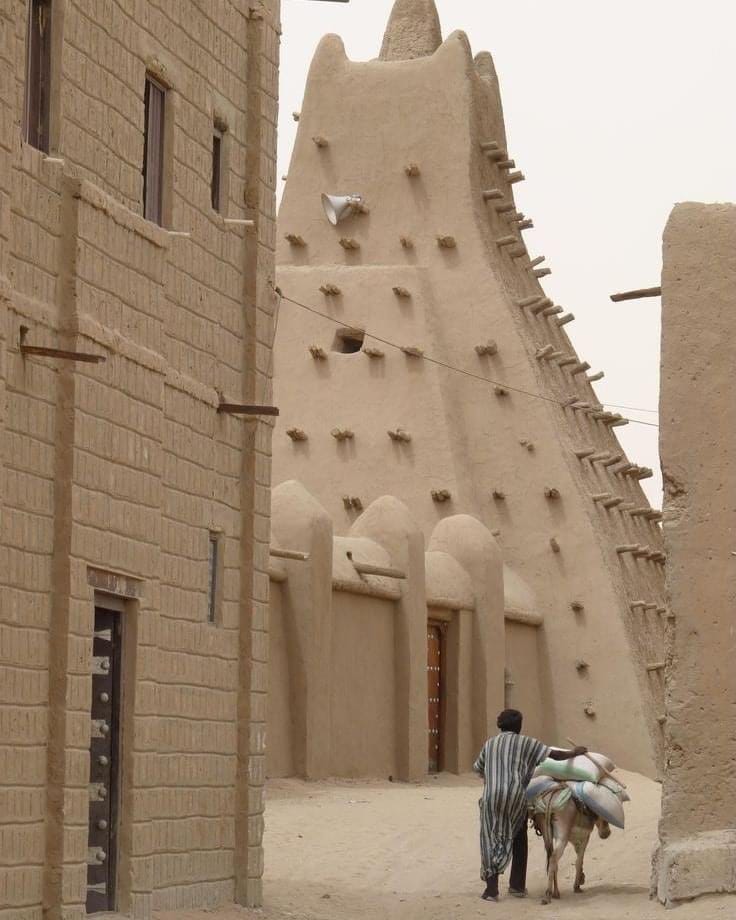
Funny, isn't it? How "1591" seems old to us but to persons living then 1200 was old, 1591 not so much. " By 1591 AD, Morocco "
There seems to be a running theme in Sahelian states whereby countries are divided between Northern Arabs and Southern African, with Northerners being marginalised and provoking conflict. Could there just be a genuine argument for enabling Northern secession and being done with it?